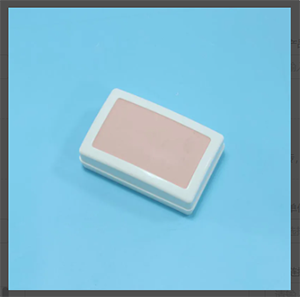23-12-2024
ADA MED SUPPLY LIMITED
Article tag: Acupuncture training module Medical Acupuncture model BIX-ZC-C
As an important tool in acupuncture teaching, acupuncture training module has attracted more and more attention from learners and educators. It not only simulates a real acupuncture operation scenario, but also provides a feedback mechanism to help students improve their skills. However, how to evaluate the actual improvement effect of such modules on operational accuracy is still a question of concern to many people. The following is analyzed from several angles:
1. Data comparison before and after operation
Scientific evaluation methods often rely on data. Progress can be quantified by recording trainees' performance before and after using the modules. For example, common indicators include error in the depth of acupuncture, the accuracy of point positioning, and the time required to complete the operation. One study showed that in students who used the acupuncture training module, positioning errors were reduced by an average of 30% and operation time was reduced by 25%, which fully demonstrated the effectiveness of the module.

2. Module feedback system support
Modern acupuncture training modules are often equipped with electronic feedback to provide accurate data on the Angle, force and depth of the acupuncture in real time. This feedback not only helps students adjust their operations in real time, but also provides an objective basis for evaluation. For example, the recorded data of one module showed that 70% of students reduced their acupuncture Angle deviation to less than 5 degrees after several uses.
3. Comparison and verification between simulation and real scene
While training modules can improve operational skills, their effects ultimately need to be verified in real scenarios. Some training institutions arrange clinical simulation tests after completing the module training to see if the trainees can apply the training skills to practical operations. The results showed that the success rate of the trainees after the module training in the real acupuncture operation increased by 40%.
4. Self-feedback and feelings of students
Another important dimension of the evaluation effect is the subjective feelings of the trainees. After the training, a questionnaire to understand the confidence and skill mastery of the trainees can provide supplementary information for the assessment. According to the data, more than 80% of the trainees believe that the acupuncture training module has significantly improved their operational confidence and accuracy.
5. Track long-term results
The improvement of acupuncture skills requires not only short-term training, but also long-term consolidation. The long-term impact of modules can be assessed by regularly retesting students to see how well they maintain their skills. Some studies have found that trainees who use acupuncture training modules have a 20% reduction in skill forgetting compared to traditional methods.
Conclusion
Acupuncture training module provides a scientific and efficient way for learners to improve their skills. Through data analysis, feedback mechanisms, and practical application testing, it is possible to fully evaluate its effectiveness in improving operational accuracy. Whether beginners or experienced practitioners, module training provides them with an important tool to break through the learning bottleneck, so that the mastery of acupuncture skills becomes more accurate and efficient.